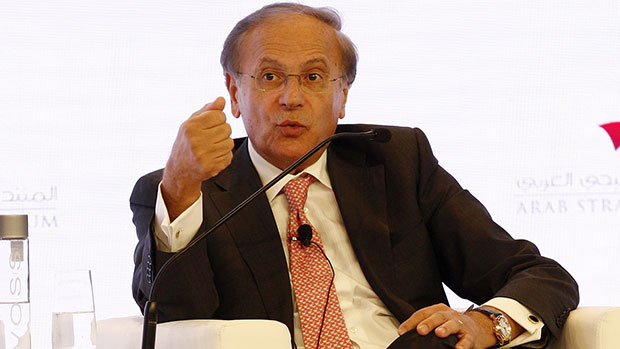
Dubai: The Gulf Cooperation Council (GCC) countries do not face any immediate threat of an economic crisis due to the plunge in the crude oil prices since the middle of this year by more than 50 per cent, experts speaking at the Arab Strategy Forum in Dubai on Sunday concurred.
“I don’t expect a drastic slowdown in public spending across the GCC because of the decline in oil prices. There could be some slowdown in growth in the short run but this is temporary and the growth is expected to bounce back as oil prices recover,” said Henry Azzam, the former head of Deutsche Bank in the region.
Azzam said the oil price decline will be a big relief for oil-importing countries in the region. While lower energy costs are expected to boost the fiscal positions of these countries, reduced cost of oil imports are expected to reduce massive current account deficits.
GCC countries that benefitted from higher oil prices from 2011 to 2014 have accumulated substantial surpluses and these will come handy in dealing with the current level of oil prices. “I don’t think there will be a need for drastic fiscal adjustments in GCC countries to deal with lower oil prices and reduced surpluses. Despite the current low prices, GCC must continue to invest in oil exploration and production to meet future demand,” said Abdullah Al Badri, Secretary General of Opec (Organisation of the Petroleum Exporting Countries).
Although GCC countries do not face any immediate threat of an economic slowdown, Al Badri said GCC needs to be cautious on wasteful expenditures.
Analysts said while some extent of expenditure adjustments on non-strategic investment projects would likely be the first step, followed by a slowing in the growth or even a contraction of current government spending. A number of countries have mentioned the need for subsidy reforms, and some have already started to act.
“People of the region perceive many subsidies as their share of the oil wealth. Thus, subsidy reforms will take effect only on a gradual basis. Wages and salaries that rose steadily during the past few years are unlikely to be reduced in the immediate future,” Al Badri said.
Governments in the region should look at innovative measures to augment revenues, Azzam said. “Dubai’s Salik is one such example. It has proved to be an efficient revenue source. The current oil price scenario should be an incentive for GCC governments to introduce the value added tax [VAT],” he added.












